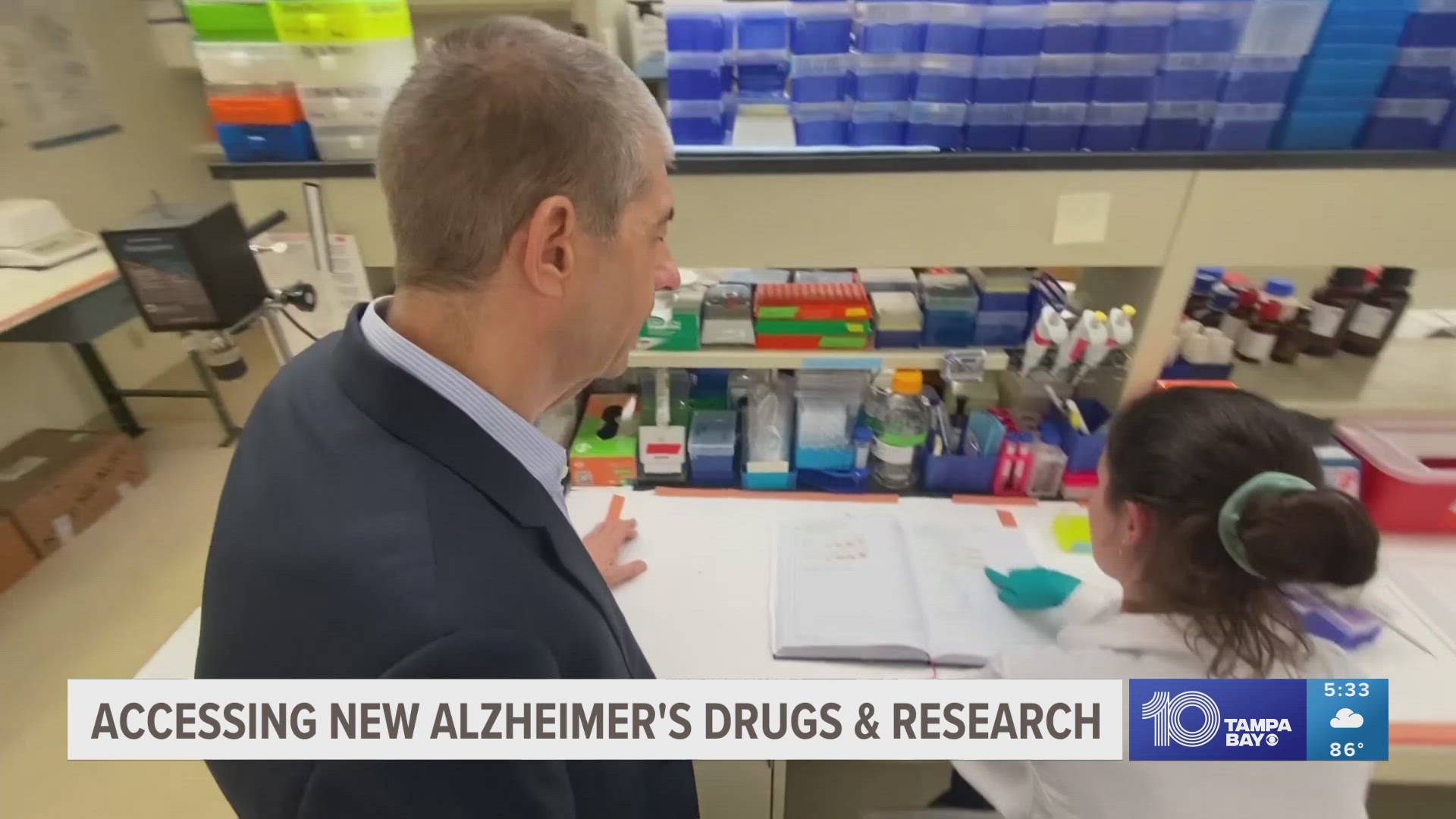BRADENTON, Fla. — A group of local researchers are working to help people living with Alzheimer's disease.
Various research by doctors contributed to the early-stage development of recently and previously approved FDA drugs to treat the illness.
Now, they are preparing for a new initiative to work with patients seeking treatment with the latest drugs and their families, hoping to stave off early onset of the disease.
"It's depressing that someone so brilliant came down to just this little person, not knowing even when to go to the bathroom," said Charmaine Downie of Sarasota.
Downie's dad, Frank, originally from Kingston Jamaica, was in his late 70s and ailing already from other illnesses when they noticed his memory loss.
It later began to take a toll on her mother, Marie, and the family had to intervene to bring him back to the U.S where he had once lived and worked, first to New York and then to Sarasota where he received various treatment.
Without any drugs to help with his Alzheimer's disease at that time, the family watched Frank deteriorate and he would eventually pass away a few years later in 2009 at the age of 87.
Left to grieve the loss of their beloved father, the experience was an eye-opener for his children, including Charmaine, now in her late 60s.
"It's a sad disease because my dad was a very brilliant man," Downie said.
"When you have a parent with Alzheimer's, I think you initially worry. You worry because you have no idea whether it was a genetic thing which caused it in the parent and if it were genetic, then if you as a child have the same genetics," she said.
To help provide clarity about that issue, Downie has begun looking into the research being done at the nearby Roskamp Institute in Bradenton. Like many who have a relationship with Alzheimer's, she is glad about recent developments in treatment.
The FDA recently approved a new, intravenously infused Alzheimer's treatment drug called Donanemab. The company Eli Lily is marketing the long-awaited drug with the brand name Kisunla, which patients can get once a month.
This now brings a total of three new medications that help slow the decline of the brain in people dealing with the early stages of the disease. Earlier, the FDA approved the drug Leqembi, which patients receive twice a month.
"Like a lot of treatments in medicine, getting in early is the key. The FDA has mandated that we very carefully assess patients because they're not without side effects, there are quite significant ones," said Dr. Mike Mullan, Executive Director of Roskamp Institute.
Mullan is part of a pioneer team of Alzheimer's researchers who discovered a gene mutation that overproduces amyloid protein in the brain causing early-onset Alzheimer's.
He and his team are setting up a new clinical program at the Roskamp Institute. Included in their plan is to assist thousands of Alzheimer's patients annually with the new drugs and provide resources to area doctors as well. A $9 million fundraising campaign for a future building for the clinic has also recently kicked off.
"I think it's a new hope for folks particularly in the early stages because one of the really frustrating things is that you know you can see things going wrong, but we haven't really been able to do anything about it. Neither have the families," said Dr. Mike Mullan.
That is until now and such innovations have brought some level of comfort and assurance to folks like Downie.
"I'm just so thrilled to hear that they're making progress now with all these new drugs. It's too late for my dad, but yeah certainly, I don't know what my future is going to hold, but I'm certainly excited to know that the drug is there," she said.
Mullan is asking families to have conversations about their family's predisposition as it relates to the disease and start making steps towards getting tests and scans and speaking with experts.
"If you have a family history, then you probably want to be a little bit more attentive to your own cognitive state throughout life, and there are things that we can do early on in our lives to lower the chances of Alzheimer's quite dramatically," Dr. Mullan said.
The Roskamp Institute plans to open the infusion clinic within the next month or two.

